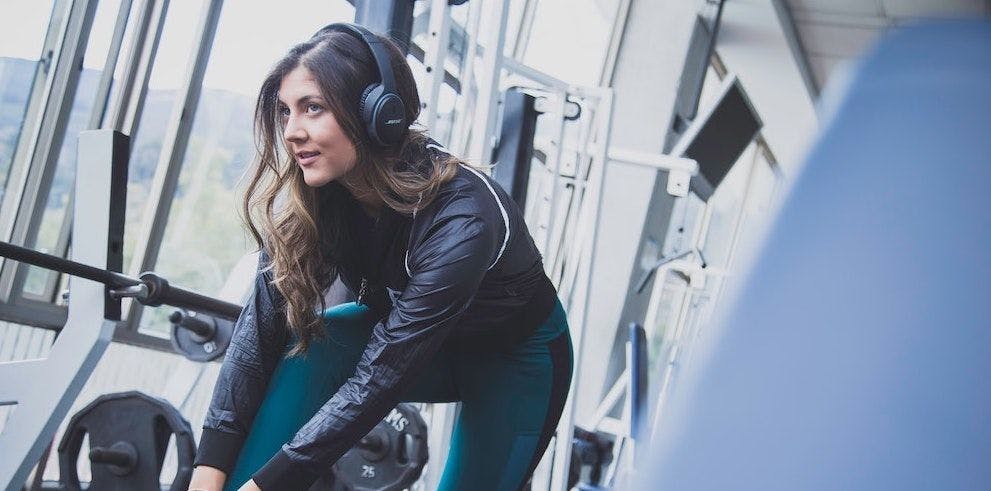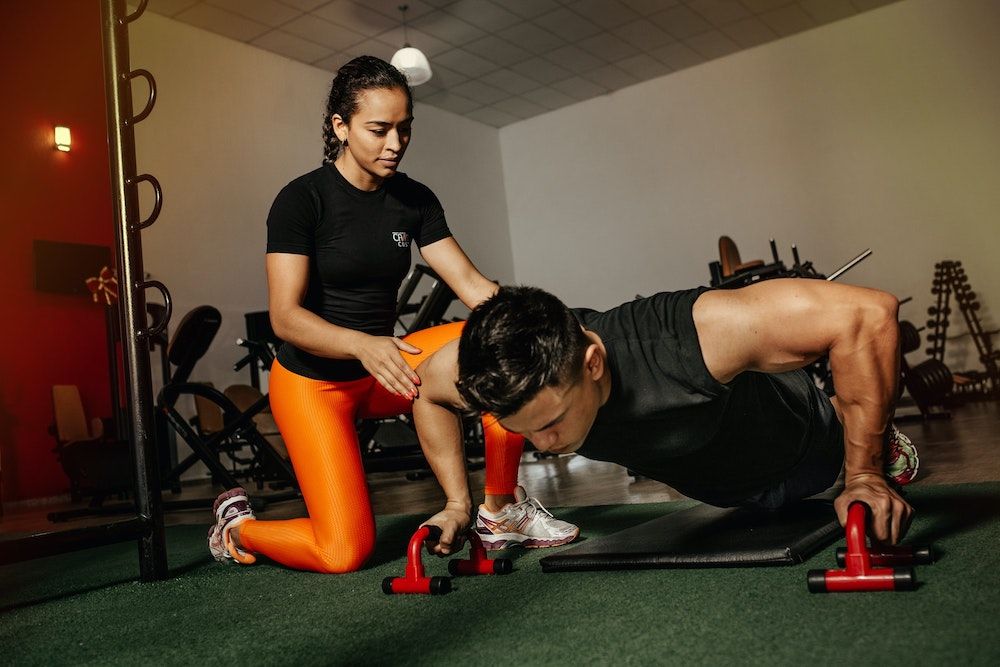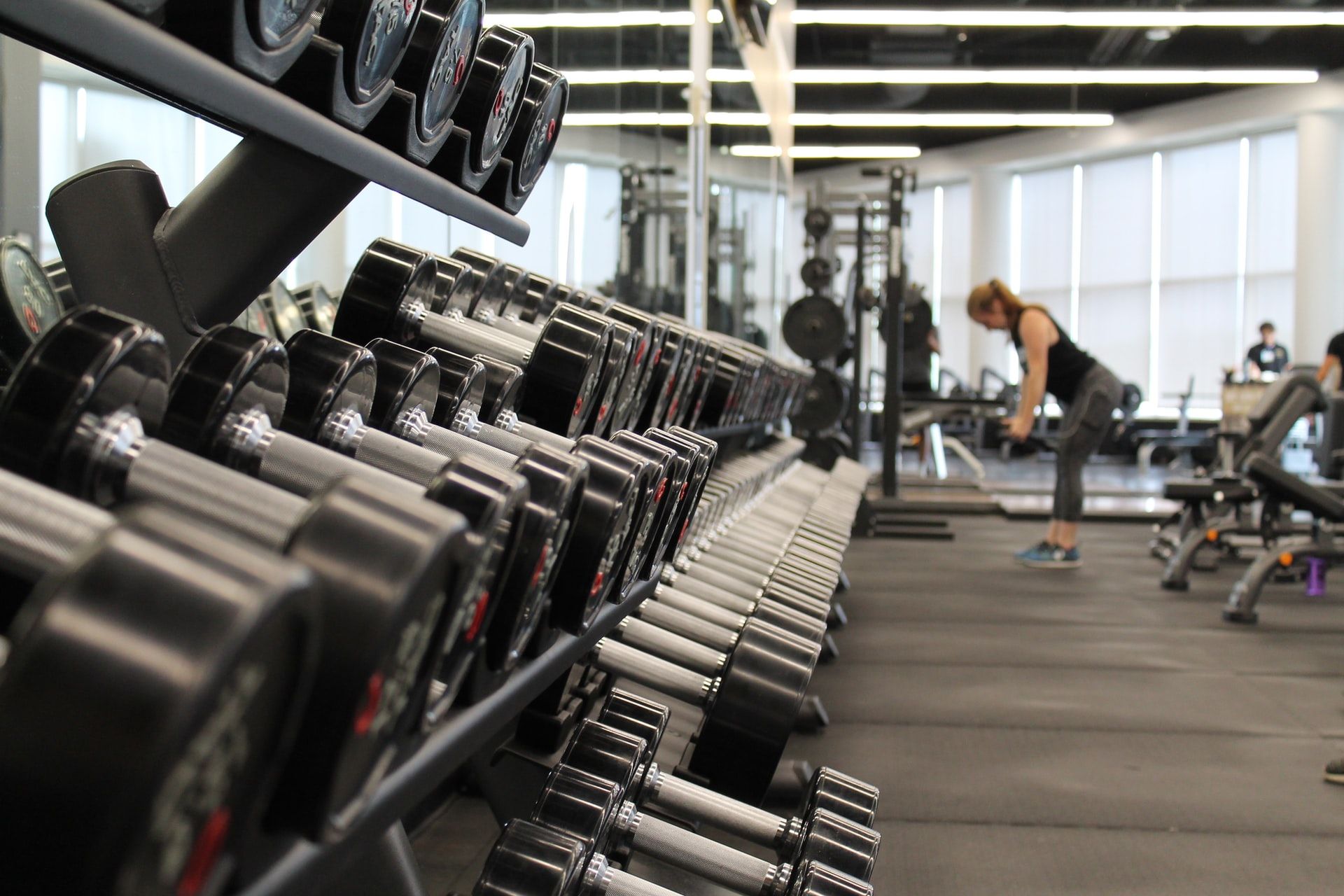
Does the thought of heading back to the gym bring you out in a sweat? We share five tips to exercise your confidence and avoid ‘gymtimidation’
At the best of times the gym can feel intimidating, let alone hitting the machines after months of living room workouts. But given the positive benefits of exercise – from boosting our mood by releasing endorphins, to helping to reduce stress – everyone should have access to an exercise outlet. So, whether you lack the space and equipment for a proper workout at home, or are just in need of a change of scene, addressing the anxiety about entering a gym could be an essential step.
As an intermittent gym goer, I’ve felt the full force of ‘gymtimidation’: the dread in the pit of your stomach at the thought of all eyes on you, worried about people judging your technique, and overwhelmed at the idea of using all those machines. And I’m not alone. Officially described as the fear of exercising at the gym or in front of other people, a 2019 survey conducted by OnePoll found that 50% of respondents struggled with gymtimidation, in some form.
We can often feel vulnerable and self-conscious after a stay away from the gym, so to help you combat gymtimidation, we share five tips backed by experts.
1. Book an induction
Even if you were a regular gym-goer pre-pandemic, an induction can help boost your confidence. Staff can walk you through specific exercises, the gym set-up, and help you feel comfortable using the machines again.
If you’re not sure what you’re doing, setting up a machine can be nerve-racking, and can even put you off doing the workout you want. You might think others are watching and judging you, but as Kaysha Thomas, sports nutritional therapist, explains, this fear is rarely, if ever, a reality.
“Quite often it’s our own judgemental minds that have us believe others are judging us,” Kaysha says. “Most people at the gym are focusing on themselves. But if you do spot someone staring at you, politely make them aware by making eye contact and giving them a smile.”

2. Prepare a pumping playlist
“A feel-good playlist helps boost your mood and provides a positive distraction,” says Kaysha. So if you have a song that really ‘speaks to you’ and gets you belting out those lyrics Beyoncé-style, now is the time to channel that, and hit the gym with a playlist dedicated to your feel-good tunes.
According to recent research from McGill University, Canada, music can even evoke a sense of reward, as it can prompt the production of dopamine (the feel-good hormone) in our brains, stimulating the same pleasurable feelings you might recognise from taking part in your favourite activities. This can be a great tool for maintaining your motivation when exercising.
3. Find a workout buddy
Walking into a new environment can make us feel exposed, but with a supportive friend by our sides, we instantly feel a little lighter. If you’re feeling self-conscious, try to share this with a confidante – you could team up and be each other’s support (and motivation!) buddies.
If you don’t know anyone personally, there are free apps you can use – like Strava, MeetUp, and Bvddy – that connect you with like-minded individuals with similar exercise interests.

4. Focus on your successes
It can be easy to fall into the comparison trap when you’re at the gym; watching others lift heavier weights, running faster, or appearing more confident in their workout routine.
“While it’s human nature to compare yourself to others, it’s important to focus on your own fitness journey,” says Caroline Harper, specialist nurse adviser for mental health at Bupa. “Negatively comparing yourself to others in the gym can be harmful for your mental health, lowering your self-esteem, and causing you to set unrealistic expectations for yourself.
“Set yourself a target before each workout, and write down your achievements afterwards; it can help to keep up your motivation, and improve your self-esteem.”
"While it’s human nature to compare yourself to others, it’s important to focus on your own fitness journey"
5. Don’t rush your return
It’s important not to feel pressured to return to fitness, as this could result in injury and even emotional burnout. Kaysha suggests easing yourself in, and remembering that instant results aren’t helpful to strive for. “Those initial physiological changes occur at a cellular level and may not translate into detectable ‘fitness gains’. Instead, focus on how you feel both during and after your workout.
“Your here-and-now body deserves to be looked after and respected. Focusing on the mental and non-aesthetic physical benefits of exercise is much kinder to your mind and body. If you feel less stressed, refreshed, energised, and more focused after a workout, you’re on the right track.”
To discuss your feelings towards working out at the gym, or to connect with sports nutritional therapists like Kaysha, visit nutritionist-resource.org.uk

